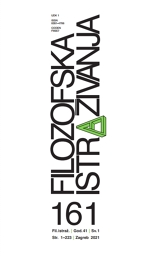Sloboda i problem djelovanja iz azijskih perspektiva – Buddha i Konfucije
Freedom and the Problem of Action from Asian Perspectives – Buddha and Confucius
Author(s): Goran Kardaš, Ivana BuljanSubject(s): Social Philosophy, Ancient Philosphy, East Asian Philosophy, Indian Philosophy
Published by: Hrvatsko Filozofsko Društvo
Keywords: Buddha; Confucius; action; self-cultivation; intentionality; attunement; wuwei;
Summary/Abstract: The paper discusses certain aspects of Buddha’s and Confucius’ philosophy that could be relevant for the general philosophical discussion on the problem of freedom, free action and related philosophical themes. Although their philosophical thinking was shaped in a rather different linguistic, cultural and philosophical milieu and background, both thinkers are in agreement at least twofold. Firstly, the possibility of freedom and free action is not opposed to the natural order of things, quite contrary, it is enabled by this order. Secondly, this possibility is being realised through never-ending self-cultivation and attunement to the world as it is. In the context of contemporary discussions on the problem of the relationship between free will and determinism, it could hence be said that both thinkers are on the position of “compatibilism”, nay, on the position that free action is possible only in the context of (soft) determinism that sees nature (or the world) as ever-changing and conditioning circumstances and “patterns”, and not bound to strict (mechanical) and linear deterministic causality.
Journal: Filozofska istraživanja
- Issue Year: 41/2021
- Issue No: 01/161
- Page Range: 65-87
- Page Count: 23
- Language: Croatian

